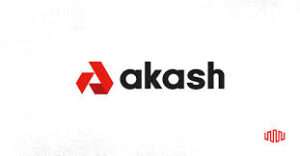The Akash Network ($AKT) presents a compelling case for a decentralized approach to cloud computing, addressing the inefficiencies of traditional providers by utilizing underutilized resources.
Through its blockchain foundation, Akash offers unique features such as user control over pricing and enhanced data privacy, which may attract those seeking alternatives to conventional services.
However, as with any emerging technology, the platform faces its own set of challenges and limitations.
Understanding these nuances is essential for evaluating its potential impact on the cloud computing landscape.
What lies ahead for Akash and its position in this competitive market? Let’s explore it further.
Quick Overview
- Akash Network is a decentralized cloud computing marketplace that connects users with providers, utilizing underutilized computing resources for cost efficiency.
- The platform employs a tokenized economy using $AKT for seamless transactions, promoting competitive pricing through direct negotiation.
- Enhanced data privacy features include encryption, ownership control, and decentralized storage solutions, ensuring user data integrity and security.
- Akash Network supports scalability and flexibility, allowing users to deploy applications efficiently while mitigating risks associated with traditional providers.
- The auction model encourages providers to offer surplus resources at lower costs, fostering a dynamic and competitive cloud service environment.

Overview of Akash Network
The Akash Network emerges as a decentralized cloud computing marketplace that aims to disrupt traditional cloud service models by leveraging underutilized computing resources.
This innovative platform connects providers of excess computing capacity with users in need of scalable and cost-effective cloud solutions. The architecture of Akash is built on blockchain technology, facilitating a transparent and trustless environment where transactions are executed via smart contracts.
By utilizing a decentralized model, Akash addresses some of the inherent inefficiencies and high costs associated with conventional cloud providers.
This approach allows for competitive pricing, as users can directly negotiate with resource providers, thereby fostering a marketplace that encourages price discovery and efficiency.
Furthermore, the network’s reliance on a tokenized economy enables seamless transactions and incentivizes both providers and users.
The Akash token ($AKT) serves as the medium of exchange within the ecosystem, facilitating payments and rewarding participants for their contributions.
Key Features of Akash
At its core, Akash Network offers several key features that distinguish it from traditional cloud computing platforms. By leveraging a decentralized architecture, Akash provides a unique solution to the inefficiencies and limitations often associated with centralized cloud services. This innovative approach not only enhances scalability but also reduces costs for users.
Key features of Akash include:
- Decentralization: Utilizes a marketplace model where providers can offer excess computing resources, encouraging competition and reducing prices.
- Interoperability: Seamlessly integrates with existing cloud infrastructures, allowing for easy migration and hybrid solutions.
- Cost-Effectiveness: Eliminates the need for monopolistic pricing models, allowing users to access lower-cost alternatives through direct resource procurement.
- Efficiency: Optimizes resource utilization by connecting demand with available supply in real time, minimizing waste.
- Security: Employs blockchain technology to guarantee data integrity and user privacy, enhancing trust and reducing vulnerabilities.
These features position Akash Network as a compelling alternative in the cloud computing landscape, appealing to developers and businesses seeking flexibility, efficiency, and cost savings in their computing needs.
Benefits of Using $AKT
The Akash Network offers several advantages through its native token, $AKT, particularly in the areas of decentralized storage solutions, cost efficiency, and enhanced data privacy.
By leveraging a decentralized architecture, users can experience reduced costs compared to traditional cloud providers while maintaining greater control over their data.
These benefits position $AKT as a compelling option for organizations seeking to optimize their cloud computing strategies.
Decentralized Storage Solutions
Decentralized storage solutions represent a paradigm shift in data management, leveraging blockchain technology to enhance security, reliability, and accessibility. By distributing data across a network of nodes, these solutions mitigate risks associated with centralized systems, such as single points of failure and data breaches.
The Akash Network, utilizing its $AKT token, exemplifies how decentralized storage can redefine data handling.
The benefits of using decentralized storage solutions include:
- Enhanced Security: Data is encrypted and fragmented, making unauthorized access markedly more difficult.
- Increased Redundancy: Multiple copies of data are stored across various nodes, ensuring that information remains available even if some nodes fail.
- Greater Control: Users maintain ownership and control over their data, eliminating reliance on third-party providers.
- Interoperability: Decentralized networks can often integrate with various platforms, promoting seamless data exchange.
- Scalability: As demand for storage grows, decentralized solutions can easily scale by adding more nodes, accommodating increased workloads without compromising performance.
Cost Efficiency Advantages
Cost efficiency is a significant advantage of utilizing the Akash Network and its $AKT token in decentralized storage solutions. The Akash Network operates on a unique model that leverages underutilized computing resources offered by providers, resulting in lower operational costs compared to traditional cloud service providers.
By utilizing a decentralized marketplace, users can access competitive pricing from various suppliers, promoting a cost-effective environment where users can negotiate and select the best offers tailored to their specific needs.
Furthermore, the $AKT token facilitates seamless transactions within the ecosystem, allowing users to effectively pay for storage and compute services without incurring high fees often associated with centralized platforms. This model minimizes overhead costs and enhances budget predictability, particularly for businesses and developers requiring scalable solutions.
Additionally, the transparency of on-chain transactions guarantees that users are fully aware of pricing structures and any potential fluctuations, further aiding in cost management.
As demand for decentralized storage continues to grow, the Akash Network positions itself as a viable alternative, offering a sustainable, economically advantageous option for users seeking efficient data storage solutions.

Enhanced Data Privacy
Ensuring enhanced data privacy emerges as a critical benefit of utilizing the Akash Network and its $AKT token for decentralized storage solutions. The Akash Network leverages blockchain technology to provide a more secure environment for data management, contrasting sharply with traditional centralized models susceptible to breaches and unauthorized access.
Several features contribute to the heightened privacy offered by the Akash Network:
- Decentralization: Data is dispersed across numerous nodes, reducing the risk of single-point failures or data theft.
- End-to-End Encryption: User data is encrypted before storage, ensuring that only authorized parties can access it.
- User Control: Users maintain ownership of their data, enabling them to dictate access permissions and data usage.
- Transparent Protocols: Open-source protocols allow for auditability, ensuring that operations can be verified independently.
- Incentive Structures: The $AKT token incentivizes participants to adhere to privacy standards, promoting a network culture focused on safeguarding user data.
How Akash Works
Akash Network operates as a decentralized cloud computing platform that connects resource providers with users in need of computing power.
It functions through a marketplace model, allowing providers to list their available resources while users can submit bids for these services.
The bid and provisioning process guarantees efficient allocation of resources, facilitating a dynamic and cost-effective environment for cloud computing.
Decentralized Cloud Computing
Decentralized cloud computing represents a transformative approach to data storage and processing, leveraging distributed networks to enhance efficiency and reduce reliance on traditional centralized infrastructures.
Akash Network exemplifies this paradigm by utilizing excess computing resources from various providers, creating a robust ecosystem for cloud services that is both cost-effective and scalable.
Key features of Akash’s decentralized cloud computing model include:
- Resource Optimization: By tapping into underutilized data center capacity, Akash minimizes waste and maximizes resource utilization.
- Cost Efficiency: Users benefit from competitive pricing due to the auction-based model, which allows providers to offer their surplus resources at lower costs.
- Enhanced Security: The decentralized nature of the network mitigates risks associated with single points of failure, enhancing overall system resilience.
- Flexibility and Scalability: Developers can easily scale their applications across a distributed network, adapting to varying workload demands without the constraints of traditional providers.
- Transparency: Smart contracts on the Akash Network guarantee transparent transactions and resource allocation, fostering trust among users and providers.
Through these attributes, Akash Network positions itself as a pioneering force in the domain of decentralized cloud computing.
Marketplace for Resources
The marketplace for resources within the Akash Network operates as a decentralized platform that facilitates the buying and selling of excess computing capacity. This innovative approach aims to connect cloud service providers with users seeking cost-effective and flexible computing solutions.
By decentralizing the cloud infrastructure, Akash enables a diverse array of participants, including data centers and individual providers, to list their available resources, effectively creating a dynamic marketplace.
Users can browse this marketplace to identify providers that meet their specific requirements, taking into account factors such as pricing, performance, and geographical location. This system not only enhances competition among providers but also drives down costs for users, as they can easily compare offerings.
Additionally, the Akash Network leverages blockchain technology to guarantee transparency and security in transactions, fostering trust among participants.
The decentralized nature of the marketplace empowers users to circumvent traditional cloud service models, which are often characterized by centralized control and rigid pricing structures.
As a result, the Akash Network presents a compelling alternative for users seeking scalable, efficient, and economical cloud computing solutions while simultaneously enabling providers to monetize their unused capacity effectively.
Bid and Provisioning Process
A streamlined bid and provisioning process lies at the heart of the Akash Network, enabling efficient and effective resource allocation. This process facilitates the connection between cloud resource providers and users seeking computational power.
By leveraging a decentralized marketplace, Akash allows providers to list their available resources, while users can submit bids based on their specific requirements.
Key elements of the bid and provisioning process include:
- Resource Discovery: Users can search for providers based on metrics such as price, performance, and location.
- Bid Submission: Users submit their bids, specifying their needs and budget, creating a competitive environment.
- Provider Selection: Providers evaluate bids and select projects that align with their capabilities and business goals.
- Smart Contracts: The execution of agreements is enforced through smart contracts, ensuring trust and transparency in transactions.
- Provisioning Resources: Once a bid is accepted, resources are provisioned, allowing users to deploy their applications efficiently.
Use Cases and Applications
While many blockchain networks focus primarily on financial transactions, Akash Network distinguishes itself by facilitating decentralized cloud computing services. This innovative approach allows users to tap into underutilized computing resources across the globe, thereby creating a competitive marketplace for cloud infrastructure.
One prominent use case for Akash Network is in the deployment of applications that require scalable computing power, such as machine learning models, data analytics, and web hosting. By leveraging the decentralized nature of the network, developers can considerably reduce costs associated with traditional cloud service providers, while also benefiting from enhanced privacy and data sovereignty.
In addition, Akash Network supports the growing demand for edge computing applications. By enabling processing closer to the data source, it can improve latency and bandwidth utilization, which is critical for IoT devices and real-time analytics.
Moreover, its compatibility with popular container orchestration tools like Kubernetes allows for seamless integration into existing development workflows.
Comparison With Traditional Cloud Providers
Cloud computing has long been dominated by established providers like Amazon Web Services, Microsoft Azure, and Google Cloud Platform, which offer robust infrastructure and extensive services.
However, the emergence of decentralized platforms like Akash Network presents a compelling alternative that challenges traditional models. Unlike conventional cloud providers that operate on centralized data centers, Akash leverages a decentralized marketplace to connect providers with users, potentially reducing costs and enhancing resource utilization.
Key differences between Akash Network and traditional cloud providers include:
- Cost Efficiency: Akash often offers lower prices due to competitive bidding among providers.
- Decentralization: Resources are distributed across a network, mitigating single points of failure.
- Flexibility: Users can select from a diverse range of providers and configurations tailored to specific needs.
- Transparency: Transactions and resource allocations are recorded on the blockchain, enhancing trust and accountability.
- Scalability: The platform can easily adapt to varying workloads without the constraints of fixed infrastructure.
These distinctions highlight a shift towards decentralized computing, offering potential advantages in efficiency and user control over traditional cloud solutions.
Challenges and Limitations
Despite the innovative advantages offered by the Akash Network, several challenges and limitations persist that may hinder its widespread adoption. One primary concern is the network’s reliance on a decentralized model, which can lead to inconsistencies in service quality. Unlike traditional cloud providers that offer guaranteed uptime and robust support systems, the Akash Network’s performance can be affected by the variable reliability of individual providers.
Furthermore, the complexity of deploying applications on a decentralized platform may deter users unfamiliar with blockchain technology. While the Akash Network aims to simplify the deployment process, the learning curve associated with integrating decentralized systems can be a barrier for potential adopters.
Additionally, the regulatory landscape surrounding decentralized networks remains uncertain. As governments around the world develop and implement policies related to blockchain technology, the Akash Network may face challenges in compliance, potentially affecting its operational viability.
Lastly, security concerns related to data storage and transfer in a decentralized environment cannot be overlooked. Although blockchain technology provides inherent security features, the risk of vulnerabilities remains, which could undermine user trust and ultimately impact adoption rates.
Community and Ecosystem
The Akash Network fosters a vibrant community and ecosystem that is essential for its growth and sustainability. By leveraging the collective expertise and contributions of developers, operators, and users, the network creates a robust infrastructure capable of meeting the demands of decentralized cloud computing.
This ecosystem is characterized by several key elements that enhance its operational effectiveness:
- Decentralization: Promotes a distributed model that minimizes single points of failure, enhancing reliability and security.
- Open-source Development: Encourages collaboration among developers, facilitating innovation and rapid iterations in platform functionalities.
- Community Governance: Empowers stakeholders to participate in decision-making processes, ensuring the network reflects the interests of its users.
- Educational Initiatives: Provides resources and training to onboard new users and contributors, fostering a knowledgeable community base.
- Partnerships: Engages with other blockchain projects and enterprises, expanding its reach and creating synergies that enhance service offerings.
This multifaceted approach not only strengthens the Akash Network’s position in the decentralized cloud computing sector but also builds a resilient framework capable of adapting to future challenges and opportunities.
Future Outlook for Akash Network
As the Akash Network continues to cultivate its community and ecosystem, the future outlook appears promising, driven by the increasing demand for decentralized cloud services. The shift towards decentralized computing is fueled by concerns over data privacy, security, and the rising costs associated with traditional cloud providers.
Akash Network’s unique value proposition lies in its ability to leverage underutilized compute resources, offering a more cost-effective and efficient alternative to centralized cloud platforms.
Technologically, the platform is built on a robust blockchain infrastructure, ensuring transparency and trust in transactions. Its integration with the Cosmos ecosystem enhances interoperability, allowing for seamless interaction with other decentralized applications.
Additionally, Akash’s focus on developer-friendly tools and APIs positions it as an attractive option for developers seeking flexible cloud solutions.
Market trends indicate increasing interest in decentralized finance (DeFi) and Web3 applications, which could drive further adoption of Akash’s services. However, competition in the decentralized cloud space is intensifying, necessitating continuous innovation and strategic partnerships.
Frequently Asked Questions
What Is the Current Price of Akash Network ($Akt) in the Market?
The current market price of any cryptocurrency, including Akash Network ($AKT), fluctuates based on supply and demand dynamics. For accurate and up-to-date pricing, consult reliable financial platforms or cryptocurrency exchanges.
How Can I Purchase $AKT Tokens?
To purchase $AKT tokens, one must create an account on a cryptocurrency exchange that supports $AKT trading. Following account verification, deposit funds, navigate to the trading pair, and execute a buy order for the desired amount.
Is Akash Network Regulated or Compliant With Any Authorities?
The regulatory status of blockchain networks varies markedly by jurisdiction. Compliance with authorities typically involves adherence to financial regulations, data protection laws, and operational standards, which can influence the legitimacy and acceptance of such networks in the market.
What Wallets Support Storing $AKT Tokens?
Various wallets support the storage of $AKT tokens, including hardware wallets like Ledger and Trezor, software wallets such as Exodus and Atomic Wallet, and web-based options like Trust Wallet, ensuring secure management of digital assets.
Are There Any Staking Opportunities for $AKT Holders?
Staking opportunities for token holders typically involve locking assets to support network operations, earning rewards in return. Users should consult the project’s official documentation or community channels for specific details regarding staking mechanisms and potential yields.
Wrapping Up
To sum up, Akash Network ($AKT) represents a significant advancement in decentralized cloud computing, offering a marketplace that maximizes resource utilization while ensuring cost-effectiveness and enhanced data privacy.
The platform’s innovative features and direct user-provider interactions challenge traditional cloud service models, promoting competition and efficiency.
Despite existing challenges, the potential for widespread adoption and integration within existing infrastructures positions Akash Network favorably for future growth, addressing the increasing demand for decentralized service solutions.
